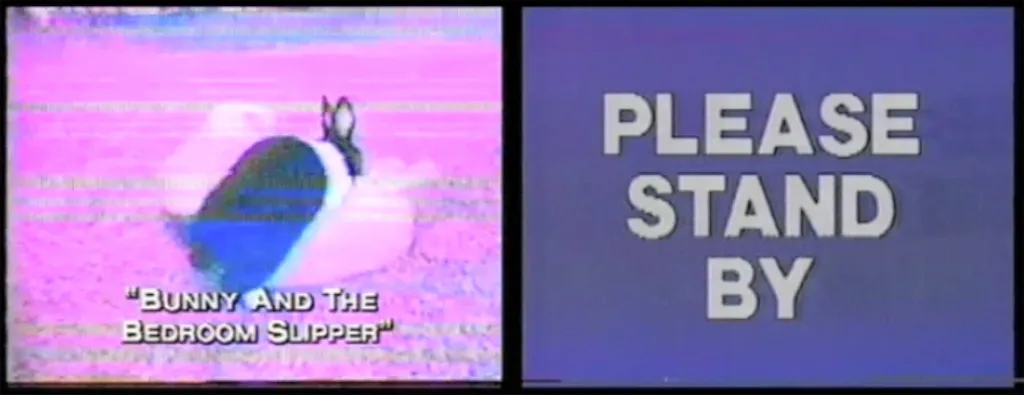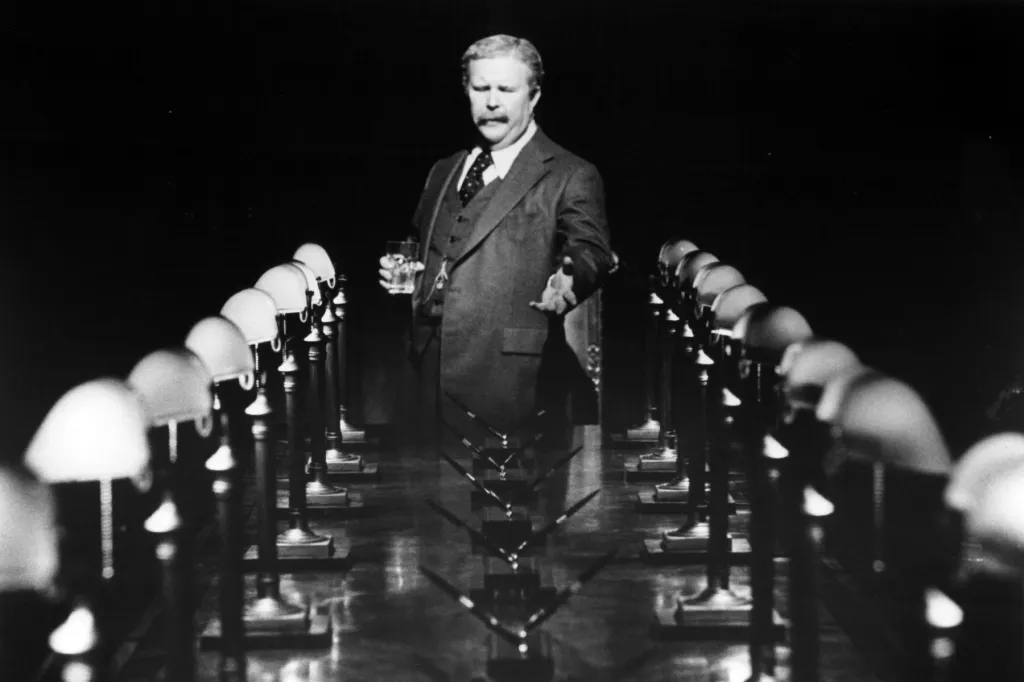It’s difficult to think of Jimmy Kimmel as a canary or imagine Stephen Colbert in a coal mine, but here we are.
Having worked in late-night television during the presidency of our country’s most revered Republican icon, Ronald Reagan, I know firsthand how bizarre the harassment of talk-show hosts by the White House really is. A lot of the Late Night With David Letterman staff weren’t fans of Reagan or his policies. Therefore we regularly took satirical jabs at his expense. Yet we never heard a word of complaint from anyone in the Reagan administration. Ditto the corporate structure running either of the networks on which Mr. Letterman exercised every version of free speech.
I actually once shepherded a piece on the Letterman NBC show called “Meet the Censors,” in which we intentionally violated, in front of a live studio audience, every one of the NBC Department of Standards and Practices censorship rules. We then asked the censors to have their way with the final video in the name of making the content network-acceptable, so we could all appreciate their handiwork. The censors were not pleased with this premise — they preferred to work with an invisible hand. But after some grousing, they played along. The version of the piece that the home audience saw that night came complete with the live studio audience’s reaction to the original jokes, alongside a version that was now full of bleeping, tiling, and X-ing to cover the offensive material. (And by the way, one of the things that was censored was a doctor speaking the phrase “For a woman to have an orgasm…” And that is because broadcast/community standards are ever shifting. In the 1950s, the word pregnant was removed from I Love Lucy.)

In the the 1985 Letterman segment “Test the Censors,” the studio audience saw a video of a bunny humping a slipper, while the at-home audience saw the network-edited version on the right.
So what made things different back then? Well, it’s always been part of the American tradition that writing jokes about imbalances in the power structure is at the very core of comedy, as every other administration in this country’s history seems to have understood. If you analyze the architecture of most jokes, you’ll see they are constructed around the idea of leveling the playing field by giving a voice to the powerless. That is what is known as “punching up.” Conversely, “punching down” is about making fun of the vulnerable and thought to be both unfunny and in bad taste. An example of punching down was demonstrated by President Trump during his first term, when he mimicked a disabled guy he didn’t like. And then again when he and his convivial cohorts made “jokes” about 82-year-old Paul Pelosi, who suffered skull fractures after being attacked in the middle of the night in his own home by a mentally ill MAGA devotee wielding a hammer.
But that was then, and this is now. Since Trump and his captivating band of Project 2025 miscreants began their rollicking second term, a lot of us have been catatonic, locked in a breathless freeze frame, watching apprehensively as he attempts to refashion what used to be many people’s favorite part of the constitution, the First Amendment, so that it protects only one voice: a voice of synchronized praise extolling the grandeur of each and every quark that makes up his magnificent being, from his heartfelt expressions of hatred for his opponents to his open-ended soliloquies about his love for that archaic word “groceries.”
And that is why there is no one in any field (or meadow or prairie for that matter) that relies on self-expression as a primary tool who didn’t immediately feel the icy finger of the grim reaper poking into their rib cage when they heard about the transparently political favor-seeking hack job that was the ABC/Disney suspension of Jimmy Kimmel.
After learning Kimmel was being allowed back on the air, two things occurred to me: 1) He will scarcely have to plan a run down for his return show since a standing ovation will take up the full hour. And 2) How much borrowed time do we have till this happens again?
Love Music?
Get your daily dose of everything happening in Australian/New Zealand music and globally.
Those of us who have found solace in laughing at the childish and narcissistic behavior of Mr. Trump have, until now, at least been allowed to wisecrack about his comically unpresidential and shockingly illiterate cavalcade of lunacy. Laughter offers momentary relief from the stress of watching him take a sledgehammer to what we thought were the unbreakable pillars of democracy.
But while Ronald Reagan could sometimes be disarmingly self-deprecating, Team Trump is far too threatened by everything to tolerate humor. So predictably, now he has upped the ante by saying, with no fear of reprisals, that media outlets who criticize him should have their licenses revoked. Perhaps he imagines that the Founding Fathers who ratified the First Amendment in 1791 met with him during a séance and were delighted to learn that in 234 years a real estate developer would more clearly define what “free speech” actually means.
Which brings me to the question of why this all progressed from a snowball fight to an authoritarian avalanche at such lightning speed? Certainly the disturbingly anti-democracy majority in the Supreme Court has sped things along by giving this president the anti-constitutional idea that he can do whatever suits him without interference. But that is only a freckle on the Godzilla-like shadow being cast by the multibillion-dollar corporate media mergers that are not-coincidentally taking place behind the scenes of both talk-show attacks, making a very few people richer than most of us can comprehend and requiring a nod of approval from Trump et al to be completed.
The first one saw Stephen Colbert sacrificed at the altar of the much-talked-about merger of Paramount Global (the conglomerate that owns CBS) with Skydance Media, putting billions more into the pockets of billionaire media mogul Shari Redstone (former chairwoman of Paramount Global) while also creating a new entity no one ever needed, known as “Paramount, A Skydance Corporation.” For one minute, I dreamed that seventysomething Shari, already mindbogglingly wealthy, might have a set of democratic ideals alive inside her, borne of a shared understanding of what America was before all this making it great again business. Ha, ha, ha. I know. I was forgetting to look at her side. Because one billion dollars doesn’t really go as far as it used to. So say you’re interested in buying the world’s most expensive cars. With only a billion to spend, you’d fall embarrassingly short trying to compete with the Sultan of Brunei, who has a collection of approximately 7,000 vehicles worth over FIVE billion. What choice do you have but to sell the First Amendment down the river?
Anyway, next up was Jimmy Kimmel, sacrificed at the altar of the much less talked-about 6.2 billion-dollar merger between Nexstar and Tegna, two words I never heard until now. And whaddya know, another merger requiring approval from Trump et al in order to create a sprawling, omnipotent conglomerate of 265 television stations in 44 states. As of this writing, both are planning to continue not airing Jimmy Kimmel Live!
Which brings us to Network, the 1976 film written by Paddy Chayefsky, which won him an Academy Award for Best Original Screenplay.

Ned Beatty’s menacing corporate chairman delivering his threat in Network.
A few months ago, I was asked to be in a documentary about Chayefsky (Paddy Chayefsky: Collector of Words, which airs on HBO Oct. 1), so I re-watched his most famous work for the first time since it was released. I was flabbergasted by the way it predicts this moment so clearly. Especially in the speech delivered by the powerful chairman of the multinational syndicate that owns the titular network and employs that disgruntled “mad as hell” newsman Howard Beale. Because Beale has just discovered a huge merger taking place between his network and the Saudis, he has started urging his audience to pressure the White House to quash the deal. So the enraged company chairman calls him into a dark, intimidating conference room where he faces a threatening reprimand, which begins, “You have meddled with the primal forces of nature, Mr. Beale.” It continues:
“You are an old man who thinks in terms of nations and peoples. There are no nations. There are no peoples. There are no Russians. There are no Arabs. There are no Third Worlds. There is no West. There is only one holistic system of systems, one vast and immane, interwoven, interacting, multivariate, multinational dominion of dollars. Petro-dollars, electro-dollars, multi-dollars, Reichsmarks, rins, rubles, pounds, and shekels. It is the international system of currency which determines the totality of life on this planet… That is the atomic and subatomic and galactic structure of things today! … There is no America. There is no democracy. There is only IBM and ITT and AT&T and DuPont, Dow, Union Carbide, and Exxon… We no longer live in a world of nations and ideologies, Mr. Beale. The world is a college of corporations, inexorably determined by the immutable bylaws of business.”
It’s both a terrifying prophecy and the perfect workout anthem for Elon and Zuck to put on repeat in their headsets at the gym.
Yep. Paddy Chayefsky saw this moment coming 50 years ago. Though I believe if he’d written it today, he would have added “and a small international fraternity of billionaire oligarchs whose priorities are the only ones that really matter.”
So now I guess it’s up to the rest of us to figure out how to group write a more humane, more constitutional sequel.
Merrill Markoe is an Emmy-winning comedy writer, author, and essayist. She is the recipient of the 2020 Paddy Chayefsky Laurel Award, the Writers Guild of America West’s highest honor for television writing. You can read more of her writing at https://merrillmarkoe.substack.com/.
From Rolling Stone US



































